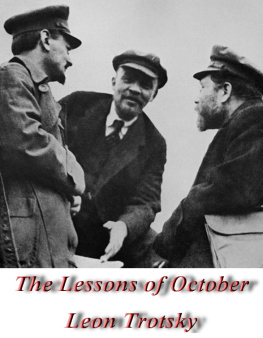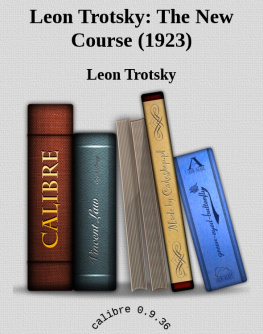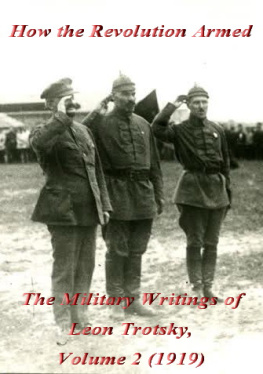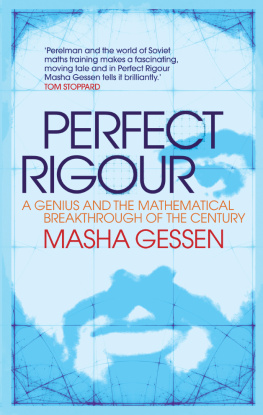Yakov Perelman - Physics For Entertainment Volume 2
Here you can read online Yakov Perelman - Physics For Entertainment Volume 2 full text of the book (entire story) in english for free. Download pdf and epub, get meaning, cover and reviews about this ebook. genre: Children. Description of the work, (preface) as well as reviews are available. Best literature library LitArk.com created for fans of good reading and offers a wide selection of genres:
Romance novel
Science fiction
Adventure
Detective
Science
History
Home and family
Prose
Art
Politics
Computer
Non-fiction
Religion
Business
Children
Humor
Choose a favorite category and find really read worthwhile books. Enjoy immersion in the world of imagination, feel the emotions of the characters or learn something new for yourself, make an fascinating discovery.
- Book:Physics For Entertainment Volume 2
- Author:
- Genre:
- Rating:5 / 5
- Favourites:Add to favourites
- Your mark:
- 100
- 1
- 2
- 3
- 4
- 5
Physics For Entertainment Volume 2: summary, description and annotation
We offer to read an annotation, description, summary or preface (depends on what the author of the book "Physics For Entertainment Volume 2" wrote himself). If you haven't found the necessary information about the book — write in the comments, we will try to find it.
Physics For Entertainment Volume 2 — read online for free the complete book (whole text) full work
Below is the text of the book, divided by pages. System saving the place of the last page read, allows you to conveniently read the book "Physics For Entertainment Volume 2" online for free, without having to search again every time where you left off. Put a bookmark, and you can go to the page where you finished reading at any time.
Font size:
Interval:
Bookmark:
1. How much slower is a snail than you are?
2. How fast do modern aircraft fly?
3. Can you overtake the Sun?
4. How do we get slow-motion films?
5. When do we move round the Sun faster?
6. Why are the upper spokes of a rolling wheel blurred and the lower spokes seen distinctly?
7. Which points in a train going forward move backwards?
8. What is aberration of light?
9. Why do we lean forwards or shove our feet under a chair when we get up?
10. Why does a sailor waddle?
11. What is the difference between running and walking?
12. How should one jump off a moving car? Explain.
13. Baron Munchausen, that famous teller of "tall stories", claimed he had caught flying cannon balls with his hands. Gould he have done that?
14. Would you like to have presents tossed at you when you're driving a car?
15. Does a body weigh more or less when falling than when at rest?
16. Must everything fall back to Earth?
17. Is Jules Verne's description of life inside the projectile, that set off for the Moon, right?
18. Can you weigh things right on faulty scales with correct weights, or on a properly calibrated balance, but with wrong weights?
19. Are the bones of our arm advantageous levers?
20. Why doesn't a skier sink into soft snow?
21. Why is it pleasant to loaf in a hammock?
22. How was Paris shelled in the First World War? 23- Why does a kite fly?
24. Does a stone continue accelerating all the time it drops?
25. What is the greatest speed a parachutist making a delayed jump can achieve?
26. Why does a boomerang boomerang?
27. Can we find out whether an egg is boiled without cracking it open?
28. Where is a thing heavier? Closer to the equator or to the poles?
29. When a seed germinates on the rim of a spinning wheel, in which direction does it stem?
30. What is perpetuum mobile?
31. Has a "perpetual motion" machine over been made?
32. Where does a body immersed in a liquid experience the greatest pressure? From the top, the sides, or the bottom?
33. What happens when a small weight suspended on a piece of thread is dipped into a jar of water balanced on a pair of scales?
34. What shape does liquid take when it weighs nothing? Can you prove this experimentally?
35. Why are raindrops round?
36. Is it true that kerosene oozes through glass or metal? Why do people think it does?
37. Can you make a steel needle float?
38. What is notation?
39. Why does soap wash dirt off?
40. Why does a soap bubble rise? And where does it rise fasterin a cold or warm room?
41. What is thinner? The human hair or the film of a soap bubble? How many times is one thinner than the other?
42. Water gathers under a glass when it's placed, with a burning piece of paper in it, bottom up on a tray of water. Why does this happen?
43. Why does a liquid rise when sipped through a straw?
44. A stick is balanced by weights on a pair of scales. Will the equilibrium be disturbed if the scales are placed under an evacuated bell?
45. What happens to these scales if placed in liquified air?
46. If you lost your weight, but your clothes didn't, would you fly up into the air?
47. What difference is there between a "perpetual motion" machine and a "gift-power" machine? Have any "gift-power" machines been made?
48. What happens to tram rails on a very hot day or on a very cold one? And why is the weather not so dangerous for railway tracks?
50. What sort of tumblers crack more often because of hot or cold water?
51. Why do lemonade glasses have a thick bottom and why are they no good as tea glasses?
52. What sort of transparent material that wouldn't crack because of heat or cold is best for tableware?
53. Why is it hard to draw a boot on after a hot bath?
54. Can we make a self-winding clock?
55. Can the self-winding principle be used for bigger machines?
56. Why does smoke curl up?
57. What would you do if you wanted to ice a bottle of lemonade?
58. Will ice melt sooner if wrapped in fur?
59. Is it true that the snow warms the Earth?
60. Why doesn't water freeze in underground pipes in winter?
61. Where is it winter in the Northern Hemisphere in July?
62. Why can you boil water in a welded vessel, without fearing that it might come to pieces?
63. Why does a sled cross snow with difficulty in a heavy frost?
64. When can we roll good snowballs?
65. How do icicles form?
66. Why is it warmer at the equator than at the poles?
67. When would we see the Sun rise if light propagated instantaneously?
68. What would happen to telescopes and microscopes if light propagated instantaneously in any medium?
69. Can we make light circumvent obstacles?
70. How is a periscope made?
71. Where should you place a lamp to see yourself better in a mirror?
72. Are you and your reflection in a mirror completely identical?
73. Is the kaleidoscope of any benefit?
74. How can we use ice to light a fire?
75. Can you see mirages in the temperate zones?
76. What is the "green ray"?
77. How should one look at photographs?
78. Why do photographs acquire relief and depth when looked at through a magnifying glass or in a concave mirror?
79. Why is it best to seat oneself in the middle of a movie-house?
80. Why is it better to look at a painting with one eye?
81. How does a stereoscope work?
82. How can we see things like the giants in fairy tales?
83. What is a telestereoscope?
84. Why do things sparkle?
85. Why does the landscape acquire deeper relief when viewed from a passing train?
86. How are stereoscopic photographs of celestial objects taken?
87. What is the effect of the so-called "shadow marvel" based on?
88. What colour does a red flag assume in blue light?
89. What is irradiation and astigmatism?
90. What kind of pictures follow you with their eyes? And why?
91. Is it a person with normal eyesight or a short-sighted person who thinks the bright stars bigger?
92. When you hear the echo 1.5 seconds after you clap your hands, how far away is the sound barrier?
93. Are there such things as sound mirrors?
94. Where does sound propagate faster, in air or in water?
95. To what technical uses can echoes be put?
96. Why does a bee buzz?
97. Why is it so hard to spot a chirring grasshopper?
98. What transmits sound betterair or some denser medium?
99. What is ventriloquism based upon?
* * *
There is a second part to this book. However, both can be read independently of each other.
CHAPTER ONE
A good athlete can run 1.5 km in about 3 min 50 secthe 1958 world record was 3 min 36.8 sec. Any ordinary person usually does, when walking, about 1.5 metres a second. Reducing the athlete's rate to a common denominator, we see that he covers seven metres every second. These speeds are not absolutely comparable though. Walking, you can keep on for hours on end at the rate of 5 km. p.h. But the runner will keep up his speed for only a short while. On quick march, infantry move at a speed which is but a third of the athlete's, doing 2 m/sec, or 7 odd km.p.h. But they can cover a much greater distance.
I daresay you would find it of interest to compare your normal walking pace with the "speed" of the proverbially slow snail or tortoise. The snail well lives up to its reputation, doing 1.5 mm/sec, or 5.4 metres p.h.exactly one thousand times less than your rate. The other classically slow animal, the tortoise, is not very much faster, doing usually 70 metres p.h.
Font size:
Interval:
Bookmark:
Similar books «Physics For Entertainment Volume 2»
Look at similar books to Physics For Entertainment Volume 2. We have selected literature similar in name and meaning in the hope of providing readers with more options to find new, interesting, not yet read works.
Discussion, reviews of the book Physics For Entertainment Volume 2 and just readers' own opinions. Leave your comments, write what you think about the work, its meaning or the main characters. Specify what exactly you liked and what you didn't like, and why you think so.













